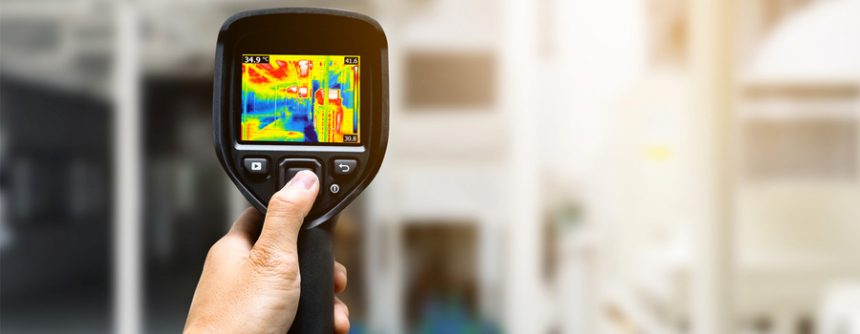A dripping faucet or a running toilet might be obvious signs of a leak, but what about the hidden ones lurking beneath floors or behind walls? These silent culprits can wreak havoc on your property, leading to costly repairs, mold growth, and even structural damage. Fortunately, technology has offered a solution: smart leak detection sensors.
These innovative devices are revolutionizing how we identify and address leaks, providing homeowners and businesses with an early warning system that can save money and stress. In some cases, water leaks can even affect the performance of humidity control systems, such as those utilizing components like the Dristeem 405725.
Understanding the Power of Smart Leak Detection
Smart leak detection sensors utilize a variety of technologies to pinpoint leaks. Some employ moisture sensors that detect the presence of water, while others monitor water flow rates or listen for the telltale sounds of leaks using acoustic sensors. More sophisticated systems may even incorporate temperature sensors to detect changes indicative of leaks.
Regardless of the specific technology used, the goal is the same: to identify leaks quickly and accurately before they escalate into major problems. Many of these sensors integrate seamlessly with smart home systems, sending alerts directly to your smartphone or other devices. This allows you to take immediate action, whether that’s shutting off the water supply, calling a plumber, or simply investigating the source of the leak.
The Benefits of Smart Leak Detection Systems
The true value of smart leak detection sensors lies in their ability to catch leaks early before they have a chance to cause substantial damage. Traditional methods of leak detection often rely on visual cues, which might not become apparent until the problem has already worsened. Smart sensors, on the other hand, can detect even the smallest leaks in their early stages, allowing for prompt repairs and minimizing the extent of the damage.
Some advanced models, like certain BAPI sensors, can even detect changes in humidity or temperature that might signal a leak before any visible signs appear.
Early detection is particularly crucial when it comes to preventing water damage. Water leaks, if left unchecked, can lead to a cascade of problems, including warped floors, damaged walls, compromised electrical systems, and the growth of toxic mold. By catching leaks early, smart sensors can save homeowners and businesses thousands of dollars in potential repairs and renovations.
However, the financial benefits extend beyond preventing water damage. Leaks, even minor ones, can waste a surprising amount of water over time, leading to inflated water bills. Smart sensors can help you identify and address these leaks, resulting in a decrease in your water consumption and ultimately saving you money on your utility bills.
One of the most appealing aspects of smart leak detection systems is the peace of mind they provide. With remote monitoring and alerts, you can keep tabs on your property even when you’re away. If a leak occurs, you’ll receive an instant notification, allowing you to take action quickly and prevent the problem from escalating. This level of control and awareness can be especially reassuring for those who travel frequently or own vacation homes.
Selecting and Installing Your Smart Leak Detection System
Choosing the right smart leak detection system involves considering several factors. First, determine the type of leaks you want to monitor. If you’re primarily concerned about water leaks, a system with moisture sensors would be suitable. If you also want to detect gas leaks, you’ll need a system equipped with specialized gas sensors. The size of your property and the layout of your plumbing system will also influence your choice.
When it comes to installation, you have two main options: DIY or professional installation. If you’re comfortable with basic plumbing and electrical work, you may be able to install a simple system yourself. However, for more complex systems or if you’re unsure of your abilities, it’s best to enlist the help of a qualified professional. They can ensure the sensors are correctly installed and calibrated for optimal performance.
The placement of the sensors is crucial for their effectiveness. Consider installing them in strategic locations where leaks are most likely to occur, such as under sinks, near appliances that use water (e.g., washing machines, dishwashers), and in basements or crawl spaces. You may also want to place sensors near your water heater or boiler, as these appliances can be prone to leaks.
It is vital to ensure that the materials used in your plumbing system are compatible with the chosen sensors to avoid false alarms or inaccurate readings. High-quality plumbing materials, such as those used with a durable plumbing check valve, can contribute to the overall reliability of your leak detection system.
Beyond Leak Detection: Additional Benefits and The Future
The capabilities of smart leak detection systems extend beyond simply identifying leaks. Many models offer additional features that can enhance your home or business management. For instance, some sensors can track your water usage patterns over time, providing valuable insights into your consumption habits. This information can help you identify potential inefficiencies, such as a toilet that runs intermittently or a leaky faucet that you might not have noticed otherwise.
If you already have a smart home system in place, integrating your leak detection sensors can be a game-changer. Many sensors are compatible with popular smart home platforms, allowing you to control and monitor them through a single app. This integration can enable automation features, such as automatically shutting off the water supply in the event of a major leak, potentially saving you from extensive damage.
Furthermore, the early detection capabilities of smart sensors can encourage a proactive approach to plumbing maintenance. By identifying minor issues before they become major problems, you can schedule repairs and replacements at your convenience, avoiding the inconvenience and expense of emergency repairs. This preventative maintenance can also extend the lifespan of your plumbing system, saving you money in the long run.
In addition to the practical benefits, installing a smart leak detection system can also have positive financial implications. Some insurance companies offer discounts or incentives to homeowners and businesses that have these systems in place. The reason is simple: leak detection systems reduce the risk of water damage claims, which are among the most common and expensive types of insurance claims.
Looking Ahead: The Future of Smart Leak Detection
The technology behind smart leak detection is constantly evolving, with exciting advancements on the horizon. We can expect to see even more sophisticated sensors that utilize artificial intelligence (AI) to analyze data and predict potential leaks before they occur. This proactive approach, combined with the use of reliable components like the plumbing check valve, could revolutionize the way we maintain our plumbing systems.
As awareness of the benefits of leak detection grows, we can anticipate wider adoption of this technology in both residential and commercial settings. The potential impact on water conservation and sustainability is significant, as these systems can help reduce water waste and contribute to a more efficient use of this precious resource.
In Conclusion
Smart leak detection sensors are more than just a fancy gadget; they’re a practical and valuable tool for protecting your home or business from the costly and disruptive effects of water damage. By providing early detection, preventing major leaks, and promoting proactive maintenance, these sensors can save you money, time, and headaches. So, if you’re looking for a way to safeguard your property and gain peace of mind, consider investing in a smart leak detection system. It’s a decision you won’t regret.








